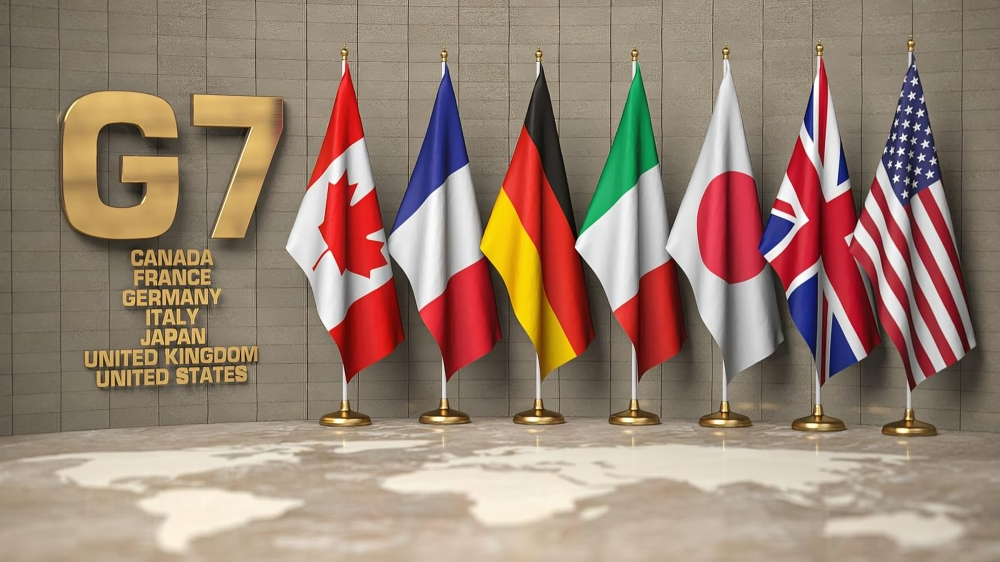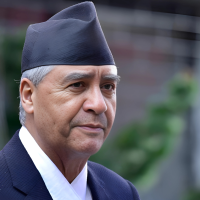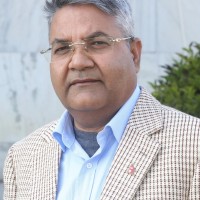G7 Finance Leaders Meet in Canada Amid Ukraine Crisis and Tariff Tensions

Top finance officials from the Group of Seven (G7) nations are gathering in Canada this week, with the war in Ukraine and rising trade tensions particularly over U.S. President Donald Trump’s tariffs—dominating the agenda.
The three-day summit, running through Thursday in Banff, Alberta, brings together finance ministers and central bank governors from the G7: Britain, Canada, France, Germany, Italy, Japan, and the United States. The discussions will cover global economic conditions, coordinated support for Ukraine, and concerns over non-market practices, including China’s industrial overcapacity.
Ukrainian Finance Minister Sergii Marchenko is attending the talks, signaling the group’s continued focus on Russia’s ongoing war in Ukraine, which began with its 2022 invasion. However, unity among G7 members has become more uncertain since Trump’s return to office earlier this year. The former president has reached out to Russia diplomatically and imposed sweeping tariffs that have unsettled both allies and adversaries.
Trump recently claimed that peace talks between Russia and Ukraine would begin soon, following a conversation with Russian President Vladimir Putin. While no official confirmation has emerged, the statement has added a layer of complexity to the G7's stance on Ukraine.
A source familiar with U.S. involvement in the meeting said Washington is reluctant to issue a joint communiqué “just for the sake of doing one.” Any consensus, they noted, must align with the Trump administration's priorities.
Canada’s Prime Minister Mark Carney has invited Ukrainian President Volodymyr Zelensky to the G7 summit in June. Finance Minister Marchenko is expected to take questions from the press on Tuesday.
U.S. Treasury Secretary Scott Bessent is leading the American delegation. A Treasury spokesperson said Bessent aims to refocus the group on “core economic challenges,” including trade imbalances and non-market practices, both within and outside the G7.
A key point of contention is China's industrial overcapacity. G7 officials are expected to raise concerns over its impact on domestic industries, with one U.S. source calling the issue "unacceptable."
While trade, security, and climate change remain central themes, analysts warn that internal divisions particularly over Trump’s tariff policy could hinder progress.
"This is an unusual G7," said Ananya Kumar, deputy director at the Atlantic Council, a Washington-based think tank.
"Trump’s sweeping tariffs have cast a shadow over the talks, even as leaders try to stay focused on shared priorities like sanctions on Russia," she told AFP.
In recent months, Trump has imposed a blanket 10% tariff on most U.S. trading partners, with threats of further increases targeting the European Union and others. He has also levied tariffs on steel, aluminum, and auto imports, creating new tensions among G7 members. A recent U.S.-U.K. The trade agreement remains uncertain in its implementation.
Last month, the International Monetary Fund cut its global growth forecast, citing the economic fallout from the tariffs. Canada, a top U.S. trading partner, is expected to be among the hardest hit.
"It’s the elephant in the room," Kumar said. "A measure of success this week would be the U.S. showing willingness to negotiate meaningful trade deals."
Though no major trade agreements are expected to be announced in Banff, officials say negotiations have made headway. The summit offers a critical opportunity to strengthen alignment ahead of the June leaders’ meeting.
Treasury Secretary Bessent is seen as a pragmatic negotiator, having previously helped ease tariff tensions with China.
"He’s proven to be the adult in the room," said Carl Weinberg, chief economist at High Frequency Economics.
"But he’s still under pressure to deliver on Trump’s agenda," he added. Progress on trade could help unlock cooperation on broader issues, Kumar noted, including support for Ukraine.
Canadian Finance Minister François-Philippe Champagne will co-chair sessions on the global economy, resilience, and security along with topics such as financial crime and artificial intelligence.













.jpg)

तपाईको प्रतिक्रिया दिनुहोस